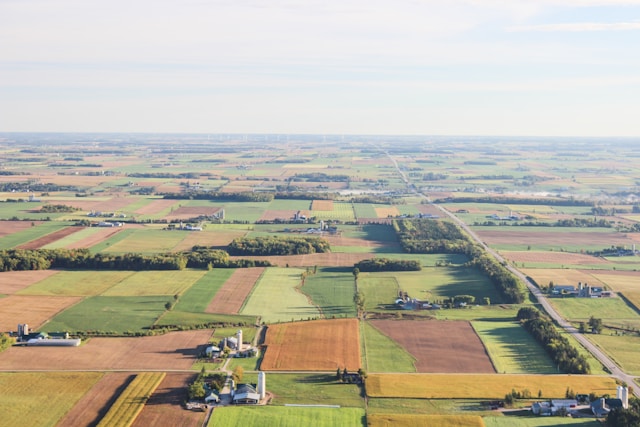By Matthew Conte, Wisconsin Farmers Union Organizer, member of EC Coalition and the WI Rural Coalition, and a JONAH Partner
Wisconsin is renowned for its picturesque landscapes, charming small towns, and vibrant rural communities. Yet, beyond its idyllic façade lies a story of struggle and resilience, shaped by the forces of corporate consolidation. In recent years, the state’s rural areas have faced mounting challenges as large corporations have tightened their grip on various industries. This consolidation has had profound effects on the fabric of small-town life, threatening the very essence of what makes Wisconsin unique.
Rural communities serve as the backbone of Wisconsin, contributing significantly to the state’s cultural heritage, economic prosperity, and sense of community. They are home to hardworking farmers, small businesses, and tight-knit families who take pride in their way of life. These towns are not just dots on a map; they are living, breathing entities with rich histories and traditions that have been passed down through generations.
One of the most pressing issues facing rural Wisconsin is the consolidation of industries, particularly in agriculture and manufacturing. Large corporations have been steadily acquiring smaller farms and businesses, consolidating power and control within a handful of entities. This trend has led to the decline of family-owned farms and local businesses, as well as the loss of jobs and economic opportunities in rural areas.
The effects of corporate consolidation ripple through every aspect of rural life. Farmers find themselves at the mercy of big agribusinesses, forced to adhere to stringent contracts and pricing structures that favor corporate interests over their own. Small businesses struggle to compete with larger chains, often resulting in closures and loss of livelihoods. As jobs disappear and economic opportunities dwindle, young people are increasingly leaving rural communities in search of better prospects elsewhere, further exacerbating the cycle of decline.
Moreover, the homogenization of rural economies has led to a loss of diversity and resilience. When a community relies heavily on a single industry or corporation, it becomes vulnerable to fluctuations in the market and external shocks. A downturn in agriculture or manufacturing can have devastating consequences for an entire town, leading to widespread unemployment, poverty, and social upheaval.
However, amidst these challenges, there is hope. Rural communities in Wisconsin are resilient and resourceful, finding innovative ways to adapt and thrive in the face of adversity. From farmers diversifying their crops to small businesses embracing e-commerce, there are signs of resilience and renewal emerging across the state.
Furthermore, there is growing recognition of the importance of supporting local economies and preserving the unique character of rural communities. Initiatives aimed at promoting sustainable agriculture, fostering new partnerships, and revitalizing small-town Main Streets are gaining traction, thanks to the efforts of community leaders, policymakers, and grassroots organizations.
Ultimately, the fate of rural Wisconsin hinges on our collective ability to address the root causes of corporate consolidation and invest in the long-term health and prosperity of these communities. By supporting local businesses, empowering farmers, and fostering a culture of innovation and collaboration, we can ensure that rural Wisconsin continues to thrive for generations to come.
In conclusion, rural communities matter deeply in Wisconsin, not just for their economic contributions but also for their cultural significance and sense of community. The effects of corporate consolidation have undoubtedly taken a toll on small and rural towns, but there is still hope for a brighter future. By working together to address the challenges facing rural Wisconsin, we can preserve the unique character and vitality of these communities for future generations to enjoy.
Image description: Aerial view of multiple fields and farms.

